
NEED TO KNOW
RELEASE TBC
DEVELOPER Blizzard Entertainment
PUBLISHER In-house
LINK bit.ly/3vQZKd2
The toughest battle I fought while playing Overwatch 2 was trying to figure out why it’s a sequel. Blizzard’s follow-up to its 2016 team-based hero shooter doesn’t make substantial enough changes to the game that you can still play today. It’s too familiar, and that only heightens the current game’s issues.
If you, like me, have played Overwatch since its inception, you can track the progress of the game by memory alone. What started as an ambitious, goofy shooter for people who don’t play traditional FPS games like Call of Duty and Battlefield has slowly turned into a game that keeps dialling up its lethality to mirror its competitors. So much has changed since 2016, and a lot of it comes from how Overwatch skewered the idea of what FPS games could be. Valorant and Apex Legends wouldn’t exist if Overwatch hadn’t roused the shooter audience with a colourful cast of characters with unique abilities and weapons.
Overwatch 2 chooses to ignore the revolutionary spirit of its predecessor and looks to other games to try to revitalise where it left off. Needless to say, I disagree with Morgan (see p12) on how much Blizzard is actually shaking up here – for me, this is a game that mistakes imitation with innovation. Overwatch used to be the most diverse game, the FPS for all different types of players, the example that everyone followed. Now, it’s a game stuck trying to please its most hardcore players and hoping new ones will simply follow along.
This story is from the {{IssueName}} edition of {{MagazineName}}.
Start your 7-day Magzter GOLD free trial to access thousands of curated premium stories, and 9,000+ magazines and newspapers.
Already a subscriber ? Sign In
This story is from the {{IssueName}} edition of {{MagazineName}}.
Start your 7-day Magzter GOLD free trial to access thousands of curated premium stories, and 9,000+ magazines and newspapers.
Already a subscriber? Sign In

A New Dawn - The rise, fall and rise again of PC Gaming in Japan
The so-called 'Paso Kon' market (ie katakana's transliteration of 'Pasonaru Computa') in Japan was originally spearheaded in the 1980s by NEC's PC-8800 and, later, its PC-9800.
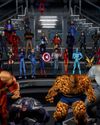
MARVEL: ULTIMATE ALLIANCE
Enter the multiverse of modness.
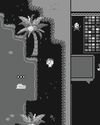
SLIDES RULE
Redeeming a hated puzzle mechanic with SLIDER
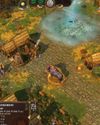
GODS AND MONSTERS
AGE OF MYTHOLOGY: RETOLD modernises a classic RTS with care
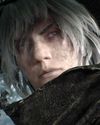
PHANTOM BLADE ZERO
Less Sekiro, more Wo Long: Fallen Dynasty
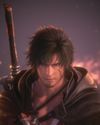
STARR-MAKING ROLE
Final Fantasy XVI's BEN STARR talks becoming a meme and dating summons
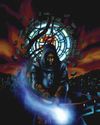
THIEF GOLD
Learning to forgive myself for knocking out every single guard.

HANDHELD GAMING PCs
In lieu of more powerful processors, handhelds are getting weirder
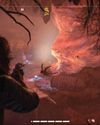
FAR FAR AWAY
STAR WARS OUTLAWS succeeds at the little things, but not much else shines
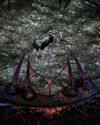
FINDING IMMORTALITY
Twenty-five years on, PLANESCAPE: TORMENT is still one of the most talked-about RPGs of all time. This is the story of how it was created as a ‘stay-busy’ project by a small team at Black Isle Studios